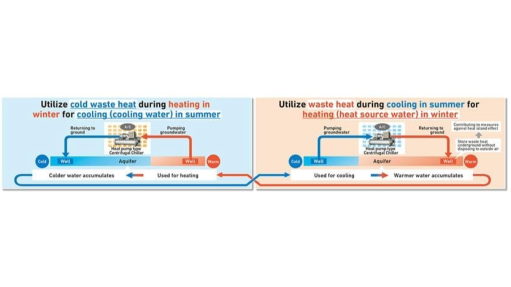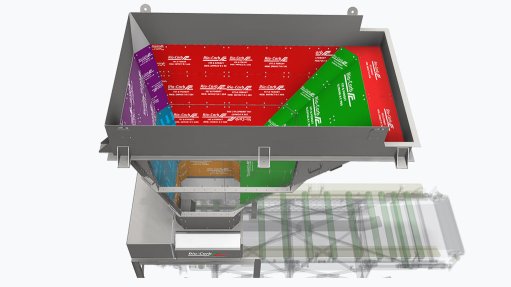BankservAfrica index shows slight relief for take-home pay in June
Despite the tough economic conditions, the average nominal take-home pay, tracked in financial payments partner BankservAfrica’s Take-home Pay Index (BTPI), showed a marginal uptick in June, adding to the stabilisation observed over the past three months.
“The average nominal take-home pay for June was R14 596, exceeding the R14 579 level shown in June 2022 and fairly higher than the R14 483 in May,” says BankservAfrica stakeholder engagements head Shergeran Naidoo.
This stabilisation in salaries noted since April is welcomed by the company as it notes that it comes against the backdrop of economic activity that has been dampened by the ongoing loadshedding, rising interest rates, a lacklustre job market and low confidence levels.
Indications that some industries have become progressively more resilient to the effects of loadshedding is an underlying positive development in an otherwise dismal environment, notes independent economist Elize Kruger.
Moreover, the South African Reserve Bank recently upwardly revised its real gross domestic product growth forecast for the year, as have other forecasters, in response to the observed resilience.
On a year-on-year basis, the average real take-home pay remains in negative territory in June but less so compared to the previous two months.
The real average take-home pay, according to the BTPI, increased to R13 522 in June, 0.8% higher than in May but still 5.7% lower than the R14 336 recorded in June 2022.
“Salary earners have had to deal with a double whammy during the past year of disappointing average nominal wage increases and high consumer inflation,” explains Kruger.
The erosion of households’ buying power has been evident in declining retail sales, the company points out. Statistics South Africa recently indicated that real retail sales for the first five months of the year are 1.2% below the corresponding period in 2022.
The latest Altron FinTech Household Resilience Index (AFHRI), which provides more clarity on the financial disposition of households and their ability to cope with debt, confirmed the observations from BankservAfrica’s BTPI, the company outlines.
The AFHRI similarly indicated that household financial resilience declined by 2.4% in the first quarter, compared to the fourth quarter 2022 and by 1.8% year-on-year with South African households now worse off than pre-Covid-19.
On total remuneration levels in the economy, the report indicated that average monthly remuneration in South Africa declined in nominal terms by 4.4% year-on-year in the first quarter (from R16 192 in quarter one 2022 to R15 473), while in real terms (deflated by the consumer price index), the decline was 10.7%.
While not definitively evident in the data yet, the pressure on salary earners could soon alleviate somewhat based on the notable moderation in consumer inflation from 7.1% year-on-year in March to 5.4% year-on-year in June, the first print back in the South African Reserve Bank’s 3% to 6% target band since April 2022, BankservAfrica notes.
“The moderation in consumer inflation will go some way in reducing the extent of the erosion of purchasing power that households have had to deal with, especially in the past year,” says Kruger.
Current forecasts suggest that headline inflation could be at 5% year-on-year in July and average about 5.2% in the second half of the year, which could bring more good news.
The job market, however, remains uninspiring as indicated in BankservAfrica’s data adjusted for weekly payments. With fewer salaries paid into the bank accounts of South Africans in each of the past three months, cumulative job losses of almost 200 000 were recorded in the second quarter.
“With little indication that a different economic environment will play out in the second half of 2023, the job market and salary adjustment are likely to remain lacklustre in the remainder of this year, a scenario that could only exacerbate South Africa’s unemployment crisis,” says Kruger.
The BankservAfrica Private Pensions Index ticked up in both nominal and real terms during June, continuing its outperformance trend.
“The average nominal private pension increased to R10 734 in June compared to the previous month’s R10 285, 7.2% higher than one year earlier and the highest monthly payment so far in 2023,” says Naidoo.
In real terms, the average real private pension in June came to R9 825, 1.7% higher compared to a year earlier. Kruger believes this signals the purchasing power of pensioners has largely been preserved amid the high inflation environment.
Comments
Press Office
Announcements
What's On
Subscribe to improve your user experience...
Option 1 (equivalent of R125 a month):
Receive a weekly copy of Creamer Media's Engineering News & Mining Weekly magazine
(print copy for those in South Africa and e-magazine for those outside of South Africa)
Receive daily email newsletters
Access to full search results
Access archive of magazine back copies
Access to Projects in Progress
Access to ONE Research Report of your choice in PDF format
Option 2 (equivalent of R375 a month):
All benefits from Option 1
PLUS
Access to Creamer Media's Research Channel Africa for ALL Research Reports, in PDF format, on various industrial and mining sectors
including Electricity; Water; Energy Transition; Hydrogen; Roads, Rail and Ports; Coal; Gold; Platinum; Battery Metals; etc.
Already a subscriber?
Forgotten your password?
Receive weekly copy of Creamer Media's Engineering News & Mining Weekly magazine (print copy for those in South Africa and e-magazine for those outside of South Africa)
➕
Recieve daily email newsletters
➕
Access to full search results
➕
Access archive of magazine back copies
➕
Access to Projects in Progress
➕
Access to ONE Research Report of your choice in PDF format
RESEARCH CHANNEL AFRICA
R4500 (equivalent of R375 a month)
SUBSCRIBEAll benefits from Option 1
➕
Access to Creamer Media's Research Channel Africa for ALL Research Reports on various industrial and mining sectors, in PDF format, including on:
Electricity
➕
Water
➕
Energy Transition
➕
Hydrogen
➕
Roads, Rail and Ports
➕
Coal
➕
Gold
➕
Platinum
➕
Battery Metals
➕
etc.
Receive all benefits from Option 1 or Option 2 delivered to numerous people at your company
➕
Multiple User names and Passwords for simultaneous log-ins
➕
Intranet integration access to all in your organisation


















